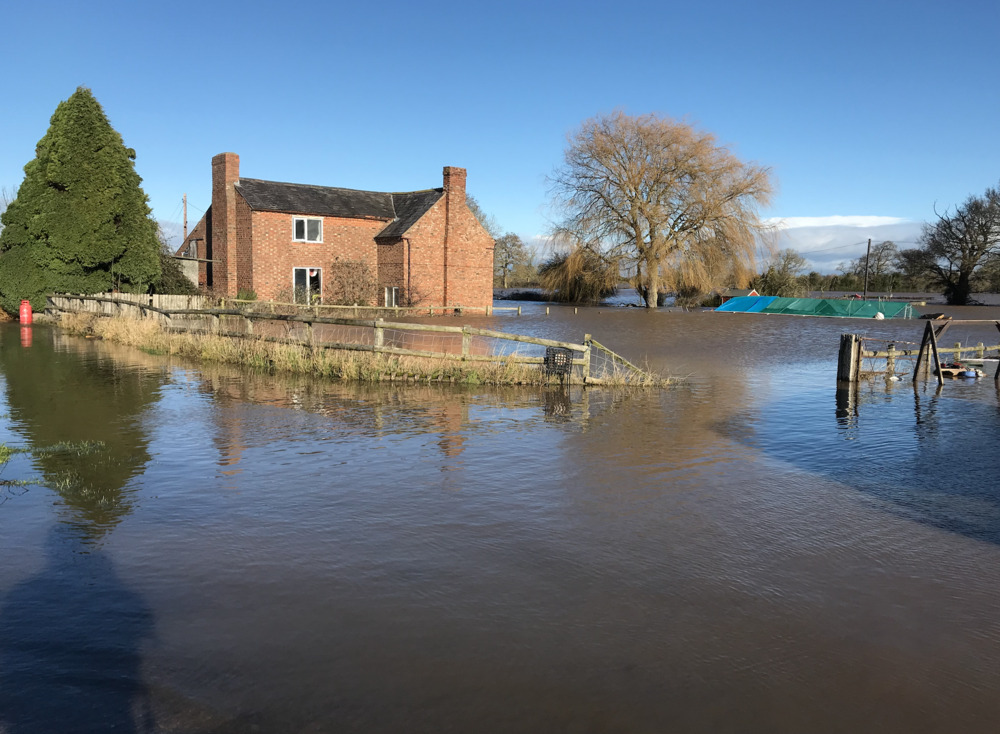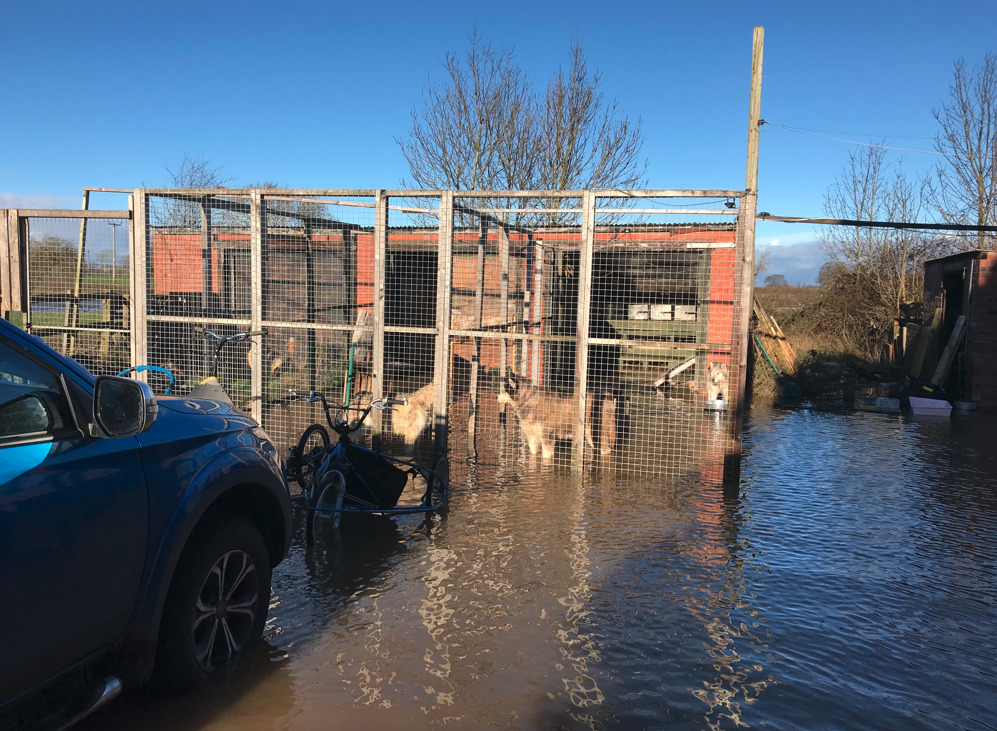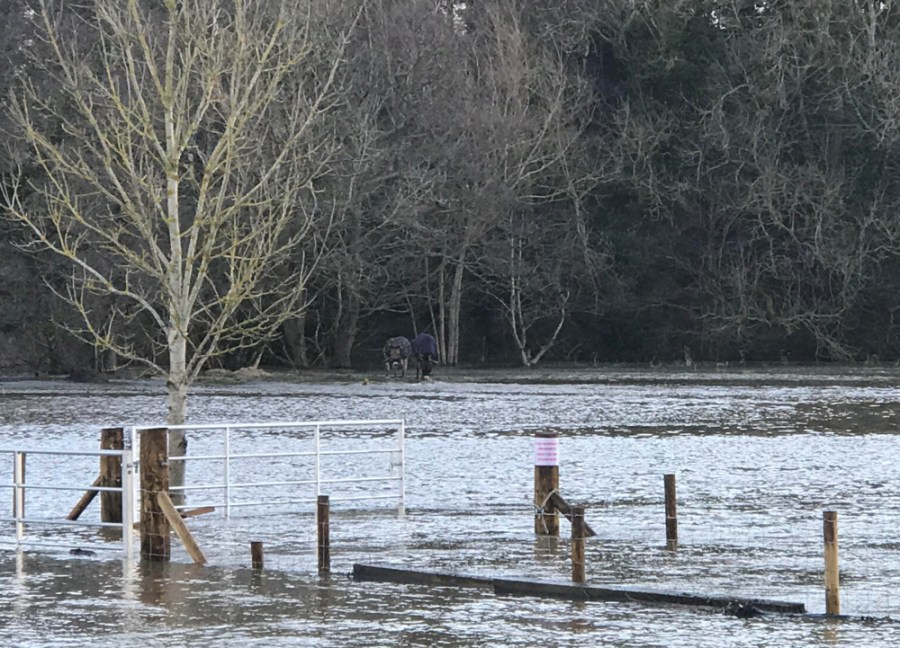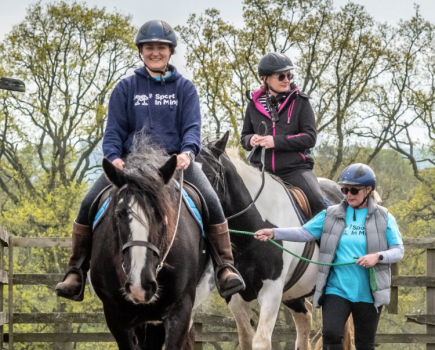Horses and donkeys were among the animals rescued by the RSPCA this week after Storm Christoph battered England and Wales and caused mass flooding.
The animal welfare charity received nine flood calls on Wednesday 20 January and 34 calls yesterday, Thursday 21 January.
One rescue team was called to a flooded yard in Manchester due to reports of 16 horses being trapped.
They arrived to find that the owners had managed to safely remove the horses — some of whom were trapped in neck-high water — after a river burst its banks.
Officers also visited a field in Mold, Wales, to assess two donkeys — Bembe and Simba — who were stranded on a small island surrounded by floodwater.
It was deemed safer to leave the donkeys in situ and monitor them until the water was lower and they could be safely moved. In the meantime, RSPCA officers have been transporting feed and hay out to them.

A flooded farm in Wales. Photo credit: RSPCA
“We’ve been sending officers out to assess incidents all over the country, from Devon to Surrey, Gloucestershire to Manchester and Cheshire to Gwynedd,” said RSPCA inspector and water rescue coordinator Jason Finch.
Dogs, cats and birds were also among the animals rescued.
In Bangor, Wales, rescuers were forced to wade across fields to reach a flooded farm due to roads being blocked. They rescued a dozen chickens and ducks from flooded pens, as well as 12 huskies.
Mr Finch explained that a local officer is sent to assess the scene and determine whether the animals are at immediate risk.
“Thankfully, they’re often able to offer advice to owners or work with members of the public to trace owners who can move their animals to higher ground,” he said.

Flooded Huskie pens. Photo credit: RSPCA
“In other situations, we may ask local people to monitor the situation and contact us if the water rises, or we may launch the boat or wade out to check on the animals and provide food.
“Conducting a rescue in water is the last resort — especially with horses and livestock — as these can be extremely dangerous, for the animals and for our teams.
“The most dangerous thing to do is move animals through flood water as they can panic, injure themselves or fall into fast-flowing water. However, in some circumstances, we have to launch rescue missions if animals’ lives are at risk.”
The RSPCA is part of Defra’s national flood response team and has around 35 inflatable boats plus 65 specialist officers who have been trained and equipped to deal with flood-stricken animals and help during major incidents.









